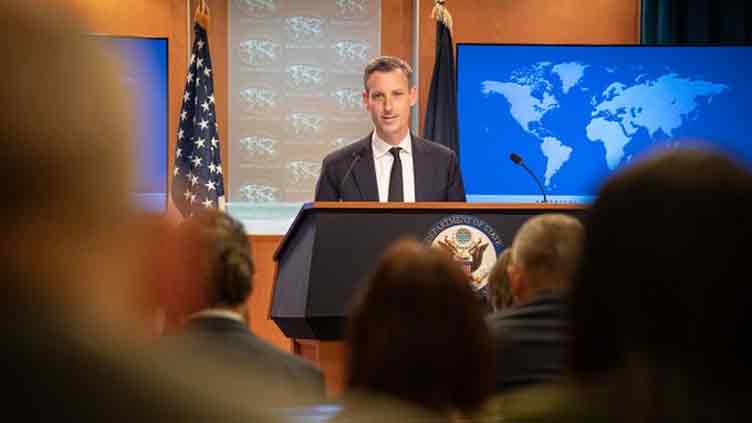US State Dept spokesperson Price steps down after two years

World
Price was sworn in as spokesperson on Jan 20, 2021, the day Joe Biden was inaugurated as president
WASHINGTON (Web Desk) - US State Department spokesperson Ned Price stepped down on Tuesday after more than two years and will now take up a new position reporting to Secretary of State Antony Blinken.
“Today was my final in-person press briefing. One person stands at the podium, but briefing requires assistance from many more. Thanks to my colleagues for the teamwork and to the reporters who ask tough and necessary questions every day. I’m grateful to have had this opportunity,” Mr Price announced in a tweet.
Today was my final in-person press briefing. One person stands at the podium, but briefing requires assistance from many more. Thanks to my colleagues for the teamwork and to the reporters who ask tough and necessary questions every day. I’m grateful to have had this opportunity. pic.twitter.com/F7r792111T
— Ned Price (@StateDeptSpox) March 14, 2023
Indian-American Vedant Patel, who is currently the deputy spokesperson, will be the interim US State Department spokesperson after Price stepped down.
Price was sworn in as spokesperson on Jan. 20, 2021, the day Joe Biden was inaugurated as president. His service was marked by Russia's invasion of Ukraine and the chaotic withdrawal of diplomats and other personnel from Afghanistan.
Blinken, last week in a statement, had said Price held more than 200 briefings with journalists, acting as a face and voice of US foreign policy.
"Ned has helped the US government defend and promote press freedom around the globe and modeled the transparency and openness we advocate for in other countries. His contributions will benefit the department long after his service," Blinken said.
Shaun Tandon, president of the State Department Correspondents' Association, had also praised Price for restoring the department's daily press briefings and facing reporters' scrutiny, as in the case of the Afghan pullout.
The department responsible for US diplomacy held briefings only sporadically during the administration of former President Donald Trump.
"Thanks to Ned, the Daily Press Briefing now seems routine and that is how it should be — it offers an opportunity for press from around the world to question the foreign policy of the United States, often critically, and requires the State Department to defend it," Tandon said in a statement. "It is a tribute to the health of American democracy."

